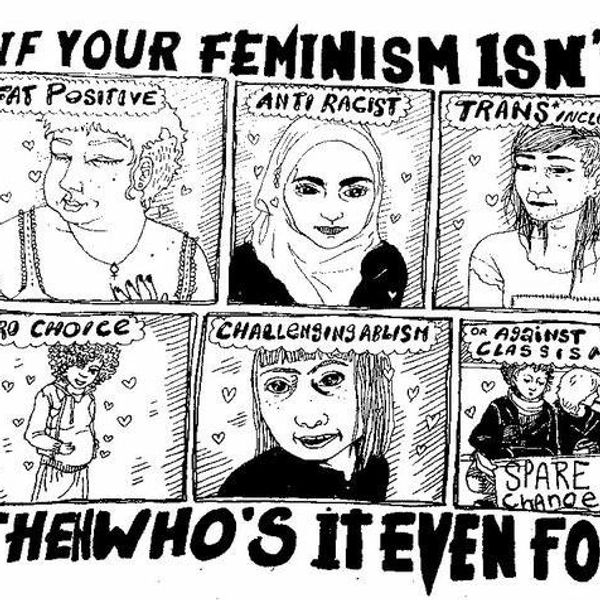Last week the US saw women march, protesting for their rights all over the country. The protests were peaceful yet powerful; a welcome change from some other inauguration protests. In the wake of the protests, Keilaa-Demi De La Cruz wrote a piece responding to men who believe feminism always means "anti-men". Her article got me thinking about feminism and why some men feel threatened by it.
Obviously, there are the extreme feminists that give the movement a bad name. Unfortunately, the extremists of any movement are often the most vocal, and perhaps they play a role in why men feel threatened. Likewise, I think there are more vocal men who speak out against feminism and do not reflect an average male's view. Movements such as The Red Pill are disturbing, and there is no comparable collation of men talking about treating women as normal human beings, so the vitriol becomes easy to find from both sides.
However, I think the general apathy and hate the feminist movement gets is endemic to its approach. There are several well-known anti-feminist organizations lead by women (CWA, IWF) which seems counterintuitive.
Why would women be against a movement that seeks to grant them more freedoms and equality?
Well, again, I think this is more of an issue of loud extremism. Conservative women groups are afraid of being attacked for wanting to pursue traditional roles. As I understand it, Feminism seeks to support women in whatever role they want to take on, whether it be housewife or CEO. Even stronger, housewife and CEO should not be thought of as a dichotomy. Each is a valuable occupation that women should be allowed to feel proud of. Likewise, men should also feel proud to be in whatever role they choose. This leads into what I believe is the core misunderstanding involved in feminism. It starts in Feminism's name itself. After all, Feminism's goal is equality, yet it is not called Equalism. My big question is:
Why should women use men as a metric?
What's a better metric?
Neither men nor women have perfect rights, nor all the protections of each other. For example, men generally fight uphill battles in cases of child custody while women struggle with maternity leave. These are just two issues in a long list of things that could be better for men, women, or both. The problem with using men as a metric is that it reinforces an "us vs. them" mentality, which leads to the general hostility towards feminism. The organization N.O.W. believes in this principle. Compare their 1968 bill of rights to their 2013 conference resolutions. With the exception of penal codes against abortion, the 1968 bill only talks about women facing issues that both men and women face, especially minority groups of both genders. The 2013 resolutions take aim to attack problems from a fair stance by seeking to promote unions, protect tipped workers, getting rid of toy stereotypes, etc. These issues not only primarily benefit women but also secure equality for other individuals regardless of sex.
I do want to step back and acknowledge my ignorance, as Keilaa-Demi suggests. I am not a woman, so I have not grown up with the struggles that being a woman comes with. I am not as invested in women's issues as I could be because they are not my own. That does not mean I do not want to support equality and betterment of everyone. Men's lives are not without issues. I bring that up not to level it against Feminists, but to say that in striving for equality we don't have to just focus on one side. Feminism is not just about women's issues, it is about human issues.





















